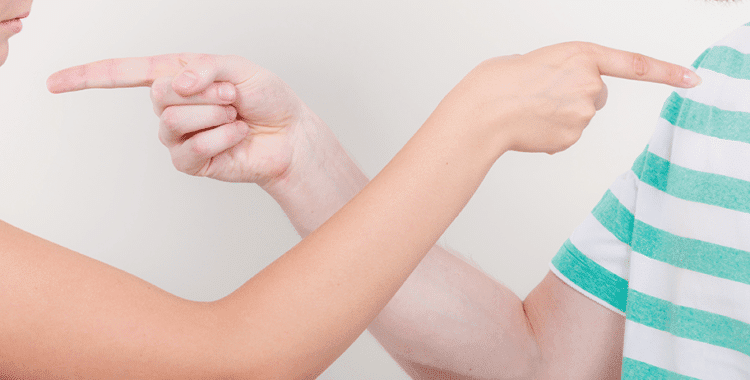What Is a “He Said, She Said” Case?
Accusations of rape and other sex crimes are notoriously difficult to investigate and resolve due to their nature. Most of these cases arise from events which happen in private when only the accused and the complaining witness are present. These cases typically involve very sensitive, personal information. If drugs or alcohol are involved, facts, times, conversations, etc. can be even more difficult to pin down. Sometimes in a sex crime case, there isn’t much evidence beyond the statements of the accuser and the accused.
That’s why one often hears a sexual assault case called a “he said, she said” case. The implication is that “she” says “he” assaulted her, “he” says he didn’t, so what’s the jury or judge to do?
Well, if the case is criminal, the jury gets a lot of help from the standard of proof. The law tells the jury to acquit a criminal defendant whenever the evidence at trial doesn’t prove the charged crime beyond a reasonable doubt. So, if the evidence seems close to balanced, the jury is to acquit.
It’s different, though, in a civil case such as a petition for a sexual assault protection order or a claim for money damages due to sexual assault. In civil cases, the standard of proof is a “preponderance of the evidence”—more likely than not. There, a slight advantage in the evidence is enough to win.
So what do you do if someone has alleged you’ve sexually assaulted him or her in private when nobody else was around to witness what happened? How do you defend yourself? Are you at the mercy of an accuser who tells a good story or is especially sympathetic?
No, usually you are not. Even when there are only two eyewitnesses to the event said to be a crime, there is usually other evidence that can make a big difference. Maybe there were text messages after the event that don’t seem consistent with the accusation. Maybe other people saw the accuser just after the event and can testify that she didn’t seem distressed.
Even in a civil case, then, you are not helpless. By taking some important steps, you can effectively fight back against a sex crime accusation.
Get a lawyer’s help as soon as you can.
Your lawyer will likely want to know many things:
- how you know your accuser
- how long and how well you know him or her
- any ideas you have about what might have led to the false accusation
Is there any reason your accuser might want to embarrass or discredit you? Is your accuser known for being free with the truth, even for falsely accusing others in the past? Does your accuser have a potential reason to try to “get even” with you?
You should also tell your lawyer of individuals who may be able to testify in your defense.
Don’t speak or write about your case with anyone but your lawyer.
While it may be tempting to vent about the frustrations of a “he said, she said” case to your friends and family members, you should resist the urge to do so. Even innocuous things you say about your case may later be used against you by the other side.
You can, however, and should talk to your lawyer. You have an attorney-client privilege which protects your communications with your lawyer. Don’t hide things from your lawyer – be as frank as possible, even if some of the facts relating to your case are embarrassing or uncomfortable. The more your lawyer knows, the more he or she can help you.
Cases involving children
Cases involving an alleged child victim are especially sensitive and especially challenging. Studies have shown that children’s memories, the memories of very young children in particular, can be influenced by grown-ups in their lives. Tragically, sometimes parents in child custody or divorce cases will attempt to discredit the child’s other parent with a sexual assault accusation in order to get the upper hand in the underlying dispute. But even adults acting in good faith can unintentionally lead a child to make a false accusation.
Finding the right lawyer
In sensitive, challenging cases like these, hiring a skilled, experienced lawyer to represent you is critical. A skilled lawyer will know the best way to rebut accusations and to present your version of events. Your lawyer can also help you identify witnesses who might support your defense. While it may seem to be just your word against your accuser’s, a good lawyer can often find more evidence than just the testimony of two adversaries.
The Marshall Defense Firm has a great deal of experience representing clients accused of sex crimes and doesn’t shy away from their difficulty. If you’re facing a rape or other sex crime accusation, please contact us at 206.826.1400 or solutions@marshalldefense.com to consult with a knowledgeable attorney.





